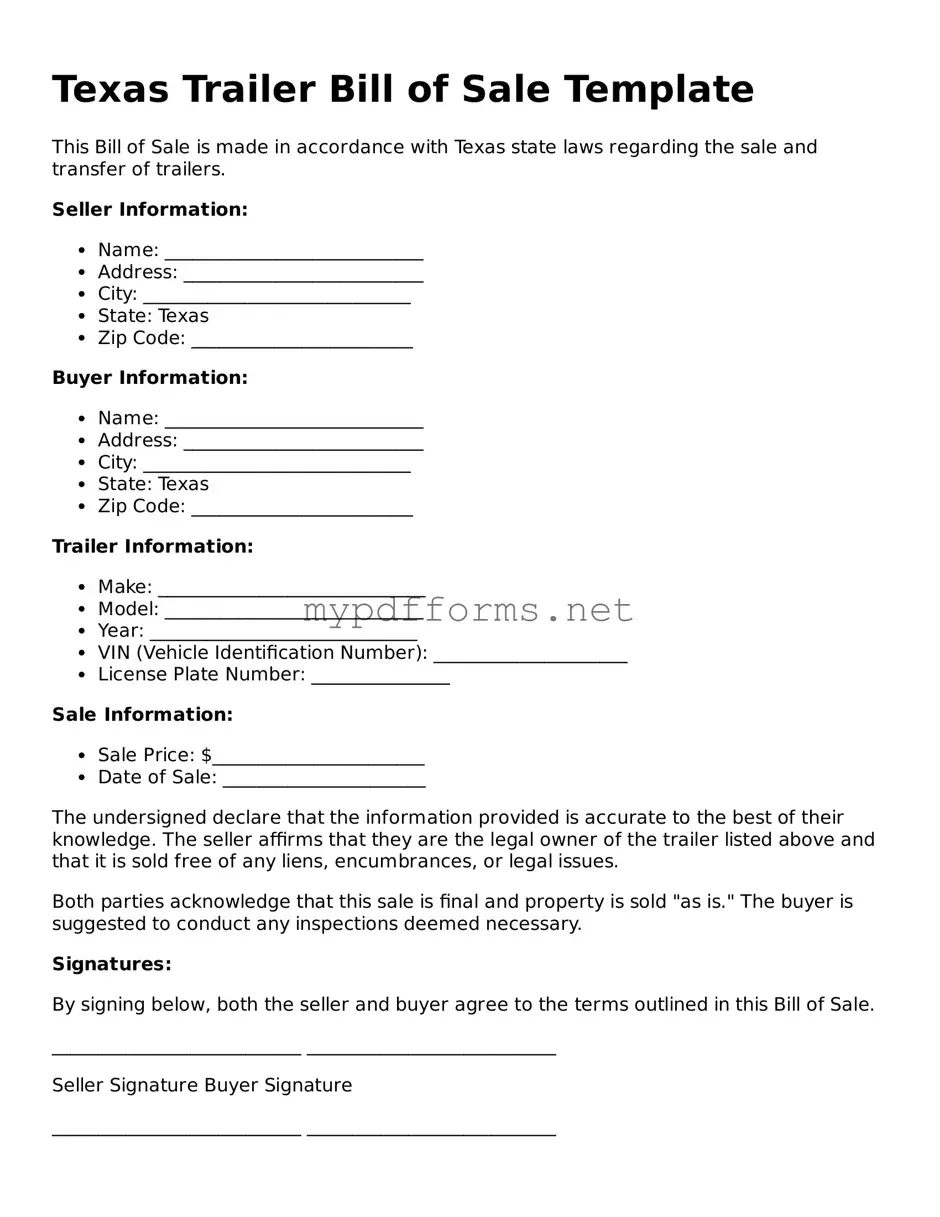The Texas Vehicle Bill of Sale is similar to the Trailer Bill of Sale in that both documents serve as proof of the transfer of ownership for vehicles or trailers. Each form includes essential details such as the buyer's and seller's names, addresses, and signatures. Both documents also require information about the item being sold, including its identification number, make, model, and year. This ensures that both parties have a clear understanding of what is being sold and helps prevent disputes in the future.
The Texas Boat Bill of Sale is another document that resembles the Trailer Bill of Sale. Like the trailer form, the boat bill of sale provides a record of the transaction between the buyer and seller. It captures similar information, including the names and addresses of both parties, the boat's identification details, and the sale price. This document is vital for registering the boat and establishing ownership, just as the Trailer Bill of Sale does for trailers.
The Texas Mobile Home Bill of Sale shares characteristics with the Trailer Bill of Sale as well. Both documents facilitate the transfer of ownership for movable properties. They contain information about the buyer and seller, along with details specific to the mobile home or trailer, such as the vehicle identification number and description. This ensures a clear record of ownership and protects the interests of both parties involved in the transaction.
When facilitating a vehicle sale in Texas, it's important to utilize the appropriate documentation, such as a Car Bill of Sale, which effectively captures the essential details of the transaction while providing both parties with a clear record of ownership transfer.
The Texas ATV Bill of Sale is similar to the Trailer Bill of Sale in that it is used for the sale of off-road vehicles. This document includes the buyer's and seller's information, as well as details about the ATV, such as its make, model, and VIN. Both forms serve as legal proof of ownership transfer and can be used for registration purposes, ensuring that the new owner has the necessary documentation to operate the vehicle legally.
The Texas Motorcycle Bill of Sale functions similarly to the Trailer Bill of Sale, as it documents the sale of a motorcycle. Like the trailer form, it requires the buyer's and seller's names and addresses, along with specific details about the motorcycle being sold. This ensures both parties are protected in the transaction and provides a clear record of ownership for the new owner.
The Texas RV Bill of Sale is comparable to the Trailer Bill of Sale, as both documents are used for the sale of recreational vehicles. They include the same essential information, such as the buyer's and seller's details, the RV's identification number, and a description of the vehicle. This documentation is crucial for establishing ownership and can be used for registration with the state, similar to the process for trailers.

